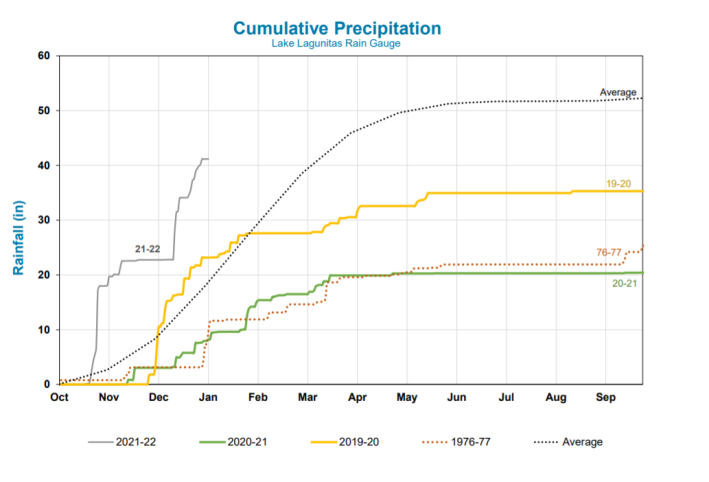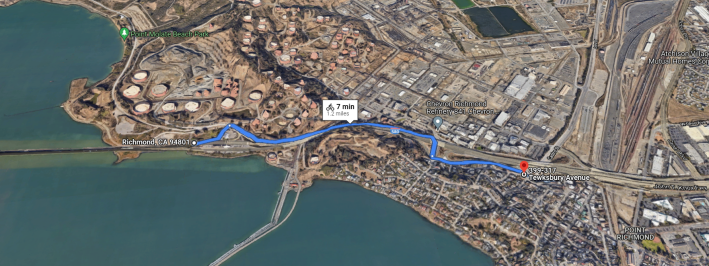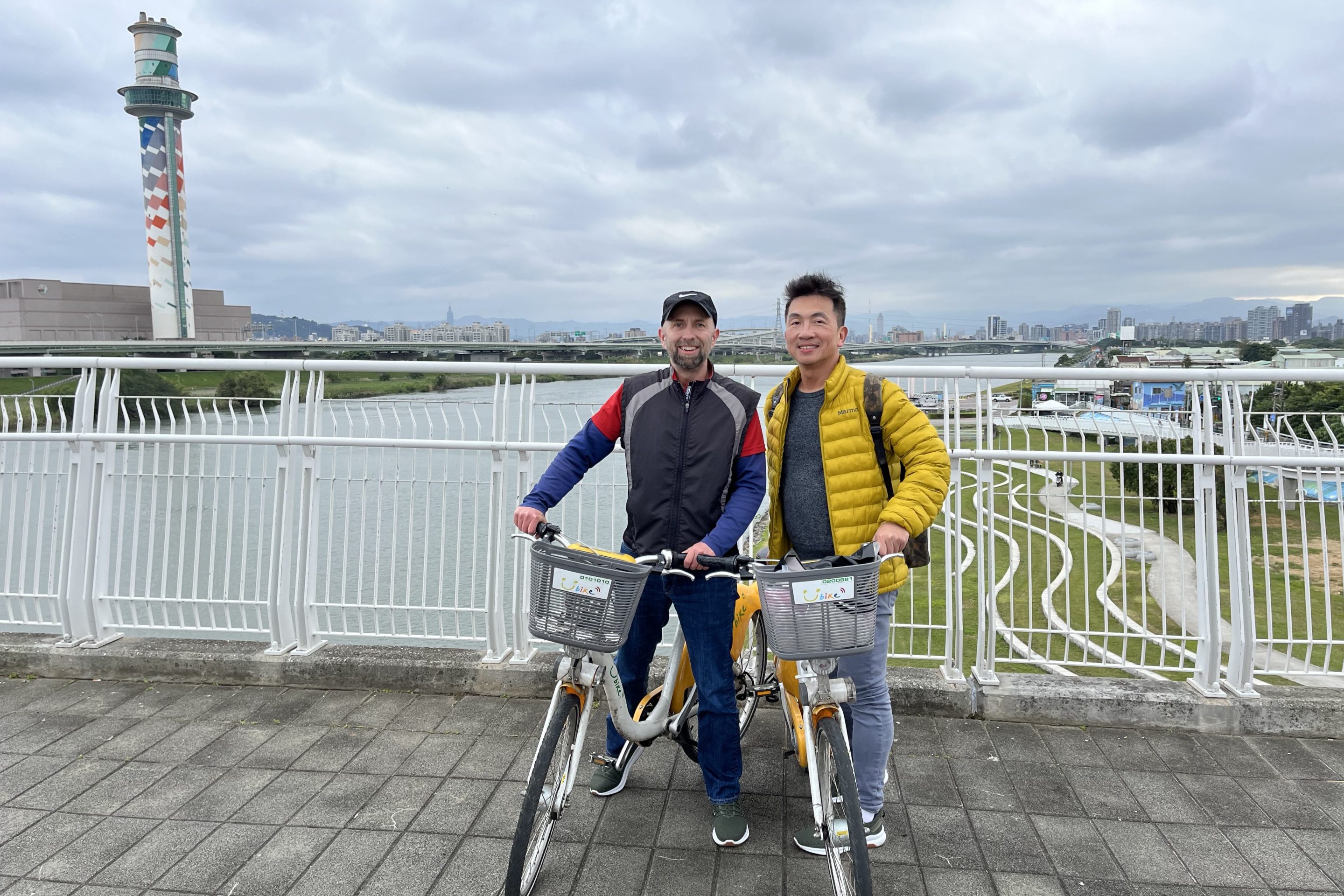Heavy rains don't usually make for great cycling. However, this year's downpours have actually cut Richmond-San Rafael Bridge cyclists a rare break: an emergency water pipeline project that would have blocked the bike approaches to the bridge is now on hold.
From the Marin Independent Journal's story:
With its reservoirs refilling from abundant rain, the Marin Municipal Water District is delaying plans for a $100 million water pipeline across the Richmond-San Rafael Bridge. The district had been scrambling for months to plan and design the 8-mile pipeline in order to begin construction in February or March. Last year the district projected it could deplete its main reservoir supplies as soon as mid-2022 should it experience a third consecutive dry winter. But after receiving more than 200% of its normal rainfall from October through December, the district’s seven reservoirs refilled from 32% of capacity in mid-October to now nearly 93%. In response, the district board voted unanimously on Tuesday to delay the pipeline project in order to conduct a full environmental analysis and consider other designs.
"The Marin Water District had been proceeding with the pipeline under the statutory exemption from the California Environmental Quality Act (CEQA). That requires an emergency, but it's now clear that Marin has enough water for this year, so there's no standing to pursue the emergency statutory exemption," the Marin County Bicycle Coalition's Warren Wells told Streetsblog. "The multi-use trail was being seen as the path of least resistance. But now that a full CEQA is being pursued that gives time for evaluation and true consideration of options that will not result in a multi-month disruption of the trail."

With time to study the options, the pipeline could be bore-drilled in sections and/or buried under sections of the freeway shoulder. Either way, there's now a good chance cyclists will not be blocked.

Wells also told Streetsblog, while he was concerned about the emergency closure, his organization wasn't in any way trying to block the pipeline. And he was impressed, he said, that the water district was planning to set up a bus shuttle to take cyclists across during the emergency closure. "I trust the people who manage the water system know what has to happen," said Wells. "We drink water too."
Meanwhile, Wells said the Bicycle Coalition will be providing updates on the pipeline study as long-term options are developed. "The rains hit the snooze alarm on the issue for at least a year."






